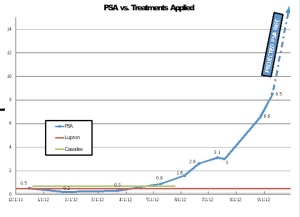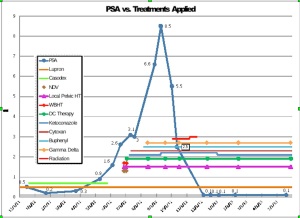Please read this first !
Posted on: May 15, 2013
- In: General
- Comments Off on Please read this first !
Welcome to our feedback blog to allow our patients and colleagues to share their health journeys, reflections and any suggestions for us and for others.
For new visitors, you are welcome to browse briefer Google reviews for MERIDIAN MEDICAL and DR. RAYMOND CHANG and we aggregated some public comments from other online patient forums as well. For those who are curious in seeing in more detail how some specific patients did under our care: please look at the “comments” below under the various disease categories to hear our patients in their own words describe their journeys.
If you are interested in leaving a comment : You are welcome to leave a Google review here, but to leave a more detailed review for Dr. Chang, SCROLL DOWN to choose a relevant category and further scroll to the bottom and click “REPLY” to post your comment. You can use your real name or a pseudonym. You do not need to register or leave your contact info (leave it blank) but you can put a contact email in your message if you like OR you can simply mention to contact you through us. Some general info about where your are from or who you are and a concise medical history and who/what led you to us is always interesting and helpful for others.
Private comments or if you have any questions about your posts or if you need us to delete / edit your post etc, please feel free to email us at webmaster@meridianmedical.org
Thankyou for visiting!
Dr. Chang / Prostate Cancer
Posted on: April 23, 2013
- In: General
- 4 Comments
Most prostate cancer cases are relatively easy to manage as there are effective upfront treatments (surgery, radiation) as well as long term management options (hormones etc) and many newer treatments including immunotherapie. Indeed, some might argue that prostate cancer can be controlled by a rigorous dietary regimen and appropriate supplements alone. Many cases come to us at the time of diagnosis to sort out the best options going forward by an unbiased third party (us), to help them weight the pros and cons of surgery v. radiation v. observation only etc, while some need some help with dietary advice and the design of a supplements program after initial intervention to prevent the cancer from recurring. But there are also some who come to us when standard options seem to be failing to seek alternative treatments to contain the progression of their disease. One such case is illustrated below.
Our patient (“ST” below) who is an engineer did detailed charting illustrating our combinatorial “cocktail” approach and the charts he made are illustrative. He could not insert the graphics as a comment (though “ST” posted his case narratively as a ‘response’ to this thread below), and we take the liberty of posting the charts for him to illustrate his case (by the way, his PSA remains undetectable and while off-treatment at 8 years now in Aug 2021 after the original post):
Fig 1 (CLICK to enlarge)
Fig 2 (CLICK to enlarge)
Dr. Chang / Other conditions (Chronic viral diseases, chronic fatigue, infertility, inflammatory bowel, autoimmunity, neurodegenerative conditions e.g. Lou-Gehrig’s, Alzheimer’s, Parkinson’s and MS etc)
Posted on: October 12, 2008
- In: General
- 6 Comments
My main area of focus is cancer and my main research interest is in cell therapy (T cell and dendritic cell therapies as in dendritic cell immunotherapy for cancer and stem cell regenerative therapy for degenerative disease), repurposed or “off-label” drugs and TCM (Traditional Chinese Medicine) and herbs for cancer. I also treat chronic viral and other infections (Long COVID, Epstein-Barr, hepatitis C & tick borne diseases such as Lyme etc), Chronic Fatigue (CFIDS), Multiple Sclerosis, ALS (Lou Gehrig’s), Alzheimer’s, Parkinson’s, Crohn’s, and various complex medical cases with no obvious diagnosis. I welcome any sharings, comments, stories, complaints, or suggestions so that we may be do even more for our patients.
Dr. Chang / Breast Cancer
Posted on: October 12, 2008
- In: General
- 6 Comments
This is an increasingly common diagnoses and increasingly seen in younger women. Most cases are caught early and current standard treatments (surgery, radiation, hormones, chemotherapy) have a definitive role to play but there are those who need help either navigating an early diagnosis ( what kind of surgery – lumpectomy v. mastectomy, radiation or not, chemotherapy or not, alternatives to hormonals etc), or help with dietary or supplements plan to prevent a recurrence, and some need alternative options to deal with recurrent and metastatic disease via more advanced treatments or so-called off-label or repurposed drugs. We offer evidence-based options for those diagnosed with triple negative disease as well as cutaneous metastasis and alternatives to more toxic conventional drugs, and can provide supplementary management approaches to side-effects of standard therapies as well.
- In: Cancer | Dr. Chang | Non-small Cell Lung
- 6 Comments
- In: General
- 12 Comments
Dr. Chang / Brain Cancer
Posted on: October 12, 2008
- In: General
- 5 Comments
Glioblastoma is one of the most difficult cancers to treat and is one cancer with the least therapeutic options offered by institutional medicine as almost all patients go through the same chemoradiation followed by Temodar routine regardless. However, glioblastoma ironically also has the widest array of repurposed or off-label alternatives and is what we consider to be an ideal model disease to practise a “cocktail” approach that I advocated in my book Beyond the Magic Bullet. Some of my views on this approach is well presented in the documentary film about Dr. Ben Williams’ cure (of gliobastoma) that is available online. Our approach has achieved long-term survival not only in the case of Dr. Williams but quite a few patients, some of whom share their stories online and some below.
Dr. Chang / Other Cancers
Posted on: October 12, 2008
- In: General
- 13 Comments
There are many cancers that are unusual or uncommon for which there is not enough research simply because their rarity translates to a small market for pharma and researchers alike. Many such patients are frustrated by their diagnois and attempt to seek out a niche specialist for their rare condition only to learn that there are few proven treatment options or available trials simple because of the disease’s rarity. We have treated quite a number of such cases of which there are fewer than a dozen reported in the literature; and would first point out that a cancer is still a cancer, rare or otherwise, and a rare cancer shares basic common cellular pathways with other more common cancers. If one doesn’t focus on their rarity but their commonality with other malignancies, they can be managed with repurposed treatments (developed for other conditions but re-tooled for newer indications). Indeed, besides narrowly focused “targeted” therapies, there are also more general treatments (eg the gammadelta T cell treatment or Dendritic vaccines) that target multiple cancer pathways and have been deployed against a broad spectrum of cancers.

17 year old California patient Brittany W. with a rare sarcoma and Dr. Chang in his office (See Apr 2013 post by family below)


Recent Comments